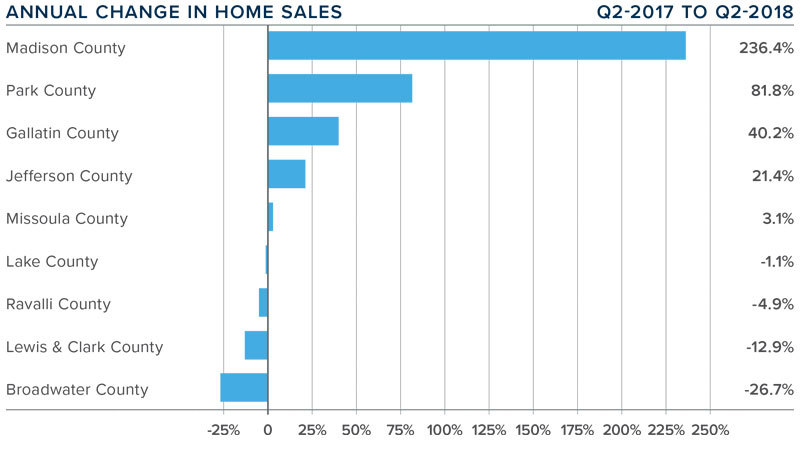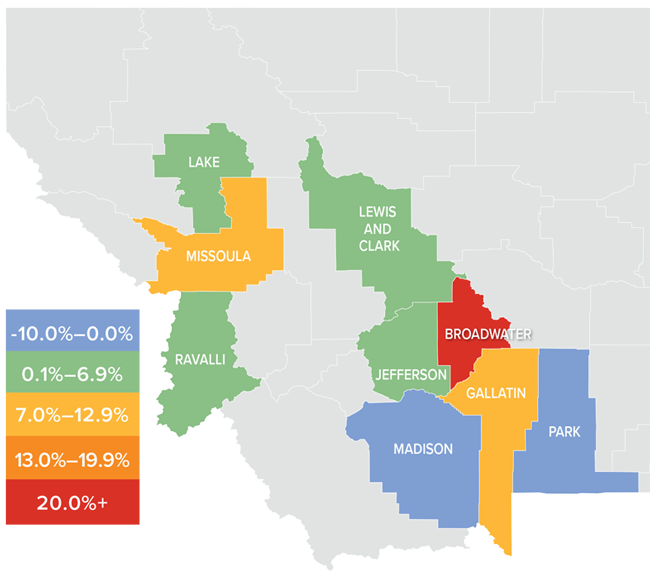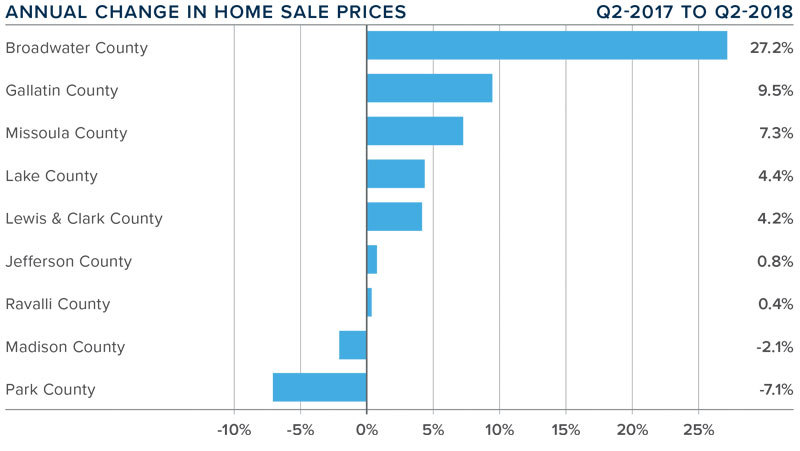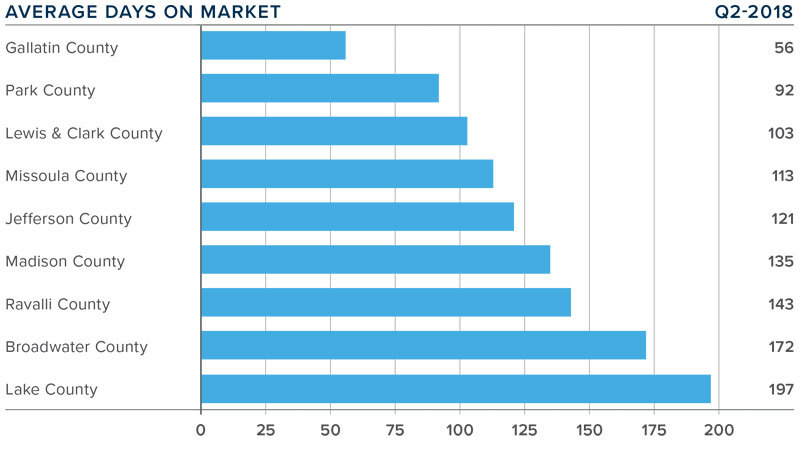The following analysis of the Montana real estate market is provided by Windermere Real Estate Chief Economist Matthew Gardner. We hope that this information may assist you with making better-informed real estate decisions. For further information about the housing market in your area, please don’t hesitate to contact your Windermere agent.
ECONOMIC OVERVIEW
According to the Labor Department, Montana added 2,900 non-agricultural jobs over the past 12 months, representing an annual growth rate of 0.6%. For perspective, the U.S growth rate is running at about 1.6%. Although the state has experienced significant increases in employment since the last recession, the pace of growth has slowed significantly, which is mainly due to a lack of workers, rather than a lack of demand for new employees. Although the annual growth rate was somewhat tepid, I believe Montana’s non-farm employment will increase by 2% by the end of 2018.
In June, the state unemployment rate was a healthy 3.8%, down from 4.0% a year ago.
HOME SALES ACTIVITY
- 1,919 homes sold during the second quarter of 2018, representing an increase of 13.8% from the same period in 2017.
- Total sales activity rose in five of the counties analyzed in this report. The largest increase was in Madison County, which had a substantial 236.4% increase, from 22 home sales to 74. Sales contracted in the four remaining counties with the greatest decline in Broadwater County, where sales were down 26.7% (representing a drop of only eight units).
- The number of homes that are for sale has risen substantially from a year ago, with an average of 1,980 active listings in the counties contained in this report. This has supported the growth in home sales.
- Inventory growth—albeit positive—is not equal across the region. I anticipate that we will see more listings come on the market as we move toward the fall selling season.

HOME PRICES

- The average home price in the region continued to rise in second quarter, with a year-over-year increase of 12.8% to $377,407.
- In addition to Broadwater County, two additional counties saw solid price increases when compared to a year ago.
- Price appreciation was strongest in Broadwater County, where home prices rose by a substantial 27.2%. Although this sounds extreme it is a very small market and subject to major swings.
- The takeaway from this data is that demand is still exceeding supply, which continues to put upward pressure on home prices.

DAYS ON MARKET
- The average number of days it took to sell a home dropped by six days compared to the second quarter of 2017.
- During the second quarter of this year, it took an average of 126 days to sell a home in the region.
- Homes sold fastest in Gallatin County and slowest in Lake County. In four counties — Missoula, Broadwater, Gallatin, and Park — days on market rose when compared to the second quarter of 2017.
- In most markets, well-priced and well-positioned homes continue to sell relatively quickly.

CONCLUSIONS
 The speedometer reflects the state of the region’s housing market using housing inventory, price gains, home sales, interest rates, and larger economic factors.
The speedometer reflects the state of the region’s housing market using housing inventory, price gains, home sales, interest rates, and larger economic factors.
For the second quarter of 2018, I have placed the needle well into sellers’ territory despite the growth in inventory, which will be a relief to home buyers. Well-priced and well-positioned homes are selling quickly and regional price growth is well above the long-term average as demand still exceeds supply. Housing affordability is still a concern in some markets, and this is something that I will be watching as we move through the balance of 2018.

Matthew Gardner is the Chief Economist for Windermere Real Estate, specializing in residential market analysis, commercial/industrial market analysis, financial analysis, and land use and regional economics. He is the former Principal of Gardner Economics and has more than 30 years of professional experience both in the U.S. and U.K.
 Facebook
Facebook
 X
X
 Pinterest
Pinterest
 Copy Link
Copy Link



